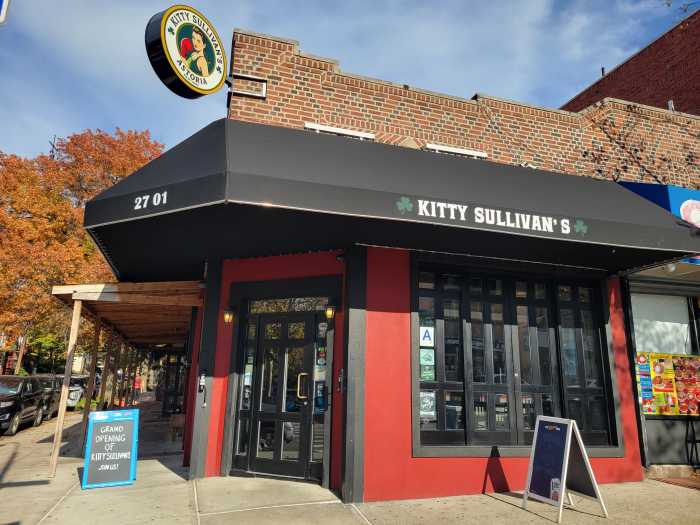A representative from the Department of City Planning (DCP) got an earful at the Community Board 1 (CB 1) meeting in Astoria on Tuesday when presenting the agency’s plan to build and preserve high-quality affordable housing in the area over the next 10 years.
Known as “Mandatory Inclusionary Housing and Zoning for Quality and Affordability,” the plan is a citywide initiative to accommodate the expected population growth in the city and close the gap between rents and incomes.
In CB 1, which includes Astoria and a small portion of Long Island City, a strong emphasis will be placed on senior housing. According to Joy Chen, a city planner with the agency, New York City is expected to see a 40 percent increase in people 65 years and older living in the area by 2040, which will require an increase in senior housing and care facilities.
To alleviate the lack of housing for seniors, the plan will allow developers to raise buildings designated for senior housing an additional 5 feet to allow for more apartments to be built. The buildings would not be allowed to exceed six stories.
The plan would also designate most of Astoria a transit zone since the neighborhood has a variety of public transportation options. Developers looking to build affordable housing or senior housing in a transit zone would not have to provide off-street parking. Parking requirements outside of the transit zone would be simplified and even reduced for affordable and senior housing.
A 5-foot increase in affordable housing developments would also allow for more mixed-use developments to “enliven streetscapes,” according to the plan. The ground floor in these developments would be elevated above the sidewalk and set back so additional planting can be added.
John Carusone, the zoning and variance chair for CB 1, had many doubts about the plan.
“You’re equating quality housing to affordable housing,” Carusone said. “This contradicts the term affordability because when you do these things, it will increase the cost of the building.”
Carusone noted that when a residential entrance is above street level, developers must provide handicap-accessible entrances, which is costly. He said that quality, affordable housing sounded like a good idea, but this specific plan did not seem affordable. Carusone suggested that the city provide an incentive to developers to build affordable housing beside tax abatements.
Several board members were upset to see that parking would not be a priority and argued that more transportation options did not discourage people from using cars.
“We have four of the largest housing developments in the country,” board member George Alexiou said. “Go to their lots, you can’t find an empty spot. So what you’re in essence telling me is when I get to be a senior and I own a car and I want to go into a senior residence, I have to get rid of my car?”
Board member Evie Hantzopoulos said the city should start planning sooner rather than later for the increasing senior population and that this plan is a good start. She also said that it was “troublesome” that only luxury housing is being developed in the area.
“I’m going to be a senior by the time it’s 2040 so I realize people are saying, ‘That’s in the future, why are we doing this now?'” Hantzopoulos said. “The development is happening now in Astoria and we’re not making any provisions for senior housing or affordable housing. So while I understand the parking issue right now, development is going up without saying we want to make it mandatory, not optional that there [are] going to be places for people to live who are not wealthy.”
The community board will meet again to discuss the plan and provide the DCP with suggestions by Nov. 16. The City Planning Commission will have 60 days to review comments before passing it along to City Council, which will then have 50 days to review and vote on the measure.



































